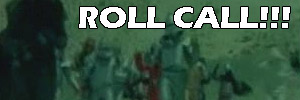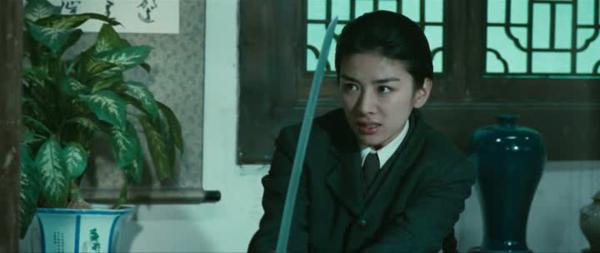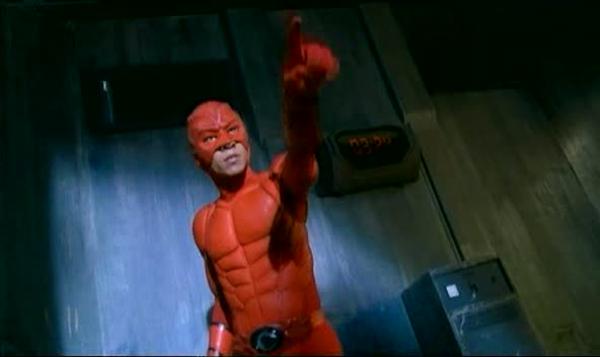The Woman Knight of Mirror Lake
aka 競雄女俠秋瑾 aka Jian hu nu xia Qiu Jin

2011![]()
Written by Erica Li Man and Checkley Sin Kwok-Lam
Directed by Herman Yau Lai-To

To say that The Woman Knight of Mirror Lake was a disappointment would be a sad understatement. The biopic of famed femme revolutionary Qiu Jin is about a remarkable woman in a dangerous time, but the entire narrative suffers through flashbacks and a lack of establishing just what the heck is going on. I am familiar with the history of Qiu Jin because she’s interesting, but I still had trouble following the historical who’s who of revolutionaries, both real and consolidated/fake. Unfocused and scattered, The Woman Knight of Mirror Lake jumps from revolutionary speak to scenes trying to depict how women got it tough to speeches about Chinese patriotism to battle scenes involving people the audience has never met. The zig-zagging prevents a good narrative that we can follow, and the flashbacks serve no purpose and don’t correspond to what is happening in the present. It’s like they read about the narrative technique in a book and decided to do it just because it sounded cool. Herman Yau Lai-To has directed some cult classics in years gone by, but his extreme nature seems to have been neutered for bigger paychecks, and along with that, any attempts to do things creatively.
The Woman Knight of Mirror Lake is a very patriotic film. Most discussions on the ills of society end up running into the narrative that China is lead by weaklings, so that’s why everything sucks. And at this time, China was essentially carved up by foreign powers, humiliated, and reform attempts had just ended in disaster. But instead of showing how the failures justify the repeated revolution attempts (there were literally dozens over the years before they took), we just jump to the next problem of women not being able to travel due to children, or Japan restricting what students can say, or Qiu Jin’s husband being an entitled douche.

Beyond the script not following a story arc that makes it easy to follow, the individual scenes themselves are messes at times. The most notable is near the end of the film where there is an attempted assassination of a local governor. The setup and subsequent fight seems to last forever, and it’s filled with unknown people fighting unknown people. Worst of all, we all know the conclusion, because it was in the beginning of the film! This is like worrying if Obi-Won Kenobi is in any trouble in a Star Wars prequel.

|

Opening with a raid on the school Qiu Jin runs after an attempted coup by known associates, a battle ensues with characters we know nothing about nor have any emotional attachment to fighting for their lives. Because Qiu Jin is among one side, I guess we’re supposed to sympathize with them.
Qiu Jin grows up a tomboy, excelling at traditionally male fields like horseback riding or book learning. She refuses to have her feet bound as a child, and even rescues a woman who was sold as a wife for a baby (so she would essentially be a chained slave!) The undercurrent is that despite Qiu Jin having these freedoms, she’ll lose them all when she marries, because no one will want to marry a girl like her. In fact, her marriage is arranged, her not even talking to her husband until after the ceremony.

Marriage life never suited Qiu Jin. Despite having two children, she longs for more in life. She publishes her poetry, which speaks of women’s issues (sadly, the poetry is barely used in the film. I think a scene with her husband ranting and ripping up poetry was longer than all the scenes of her poetry being spoken!) and urges her husband to take a government post in the capital to try to help the people.
In the capital, she sees the tidal waves of human misery that are the poor begging on the streets. They swarm the car asking for food to feed their starving children. This scene could have lead to a good indictment of the powers that be (they even started to blame then), but then things go off the hinges as suddenly the guards begin beating the poor so they will clear the road for a Western family. Qiu Jin is so outraged she beats the guards (as her husband watches, helplessly) and even stands down the White guy, who has a gun, representing how the West outpowered China. Even though she takes him down, she doesn’t hurt him after his son screams “Don’t kill my father!” I like to imagine this is the family from Empire of the Sun, though this is too early in history.
What a way to blow an incredibly powerful premise. The crumbling of the focus as the message changes from tide of human misery and the failings of the Qing government to well-choreographed action sequence to foreigners are evil, but not really that evil, is a spectacular failure. If anything, the scene showed that China’s problems were so complex that people 100 years later can’t figure out which ones to focus on.

Qiu Jin’s husband doesn’t do anything much to help out the people. Her husband is presented as both a lousy guy who wants to just live life and party, and someone who emotionally needs her and falls apart when she leaves. But he doesn’t do anything to help, he just wants to sit around and be, enjoying his privilege. Hi collapse to beta male after Qui Jin returns from overseas study I guess was supposed to show that she is the family member in charge, she has achieved the reversal of gender roles in her own house, at least. She’s literally wearing the pants at this point. I am not sure if this is a compliment to Qiu Jin or an indictment of her husband for failing to be a man. His character is quickly discarded after her return and is not even present at her execution.
In the capital, Qiu Jin befriends the local wives of the powerful, many of which have some independence thanks to the wealth of their family. A fight with her husband prompts her to leave, traveling overseas to Japan to learn in university. There she teams up with radicals who will form the backbones of several attempted rebellions. Her return home after a few years is met with joy, but Qiu Jin sees the same problems afflicting China and joins the radicals there, leaving her home forever and eventually working at an athletic teacher’s training school that is secretly the training ground for the Da Tong revolutionaries.

The Da Tong is what is being raided in the beginning of the film, and Qiu Jin is captured, put on trial, tortured, and eventually executed by beheading (the traditional male execution style) Like a lot of revolutionaries, they adopt a whole host of views, though the hope of a total overturn of all societies ills is beyond the ability of even the most well-supported revolutionary groups. People will be excited about a few key issues, and the rest just have to hope they can get carried along in the tidal waves. Consequences will follow for those that don’t make the cut. We’ve seen this before countless times throughout the world, and will see it again.
Qiu Jin’s execution cemented her place in history as a martyr, both for the revolution against the Qing and for women’s equality. Qiu Jin became a symbol of feminism in China and is now legendary, her home a museum and statues dedicated to her. As China sprints towards modernity, it’s confronting a lot of issues about traditional views in gender. The remaking of the country is remaking how people interact with each other. While things are not going to get easily sorted out (they never are, anywhere!), Qiu Jin’s life is just as relevant now as it was 100 years ago. This film, on the other hand, shall enjoy the bargain DVD bin of history.

Rated 3/10 (good friend, useless husband, panicky radical)
Please give feedback below!









